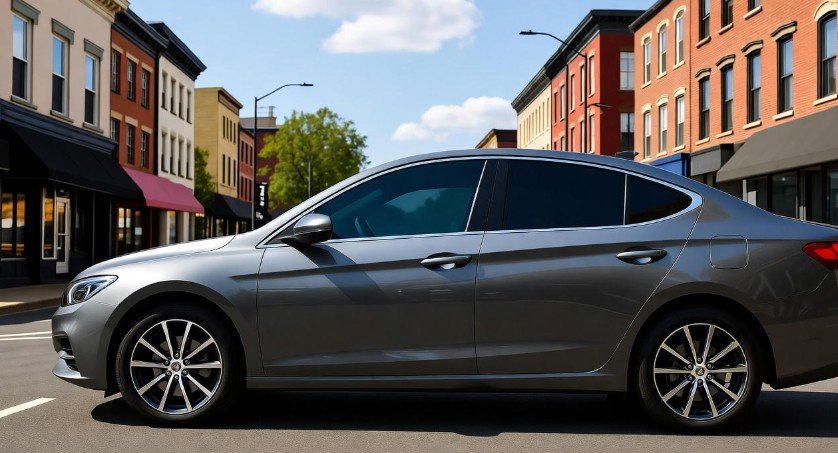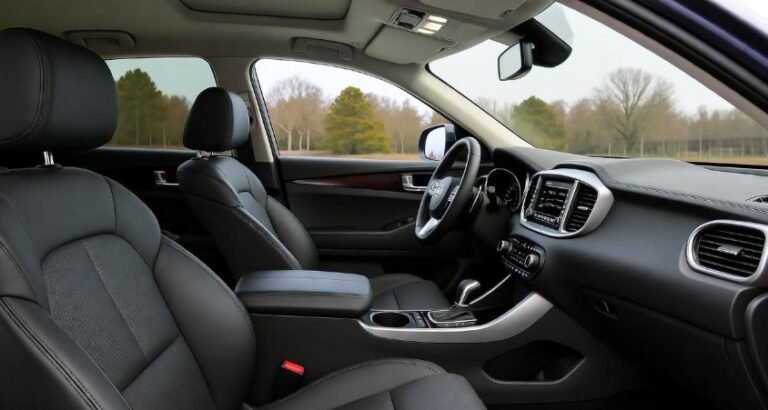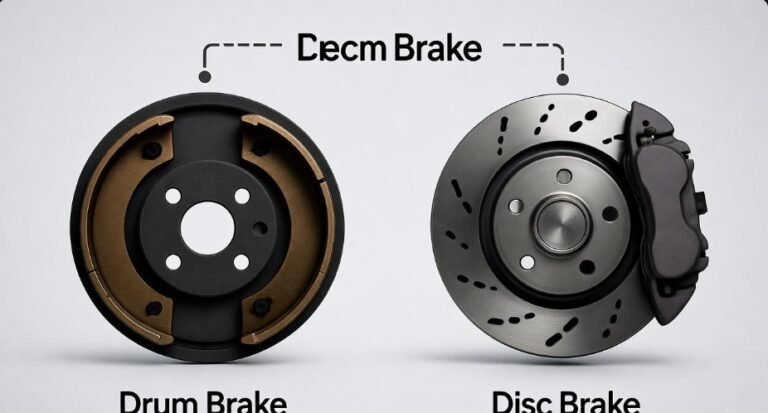New Jersey Window Tint Laws: A Complete 2025 Guide for Smart Drivers

Have you ever admired a sleek car with dark-tinted windows gliding down the New Jersey Turnpike and thought, “That looks amazing—I want that too”?
You’re not alone. Window tinting adds style, privacy, and UV protection to any vehicle. But here’s the catch: not all tints are legal in New Jersey.
In 2003, New Jersey lawmakers introduced strict window tint laws to ensure that both safety and visibility remain a top priority for all drivers. These laws weren’t made to limit your creativity—they were designed to protect everyone on the road. Still, many people get caught off guard by how specific the regulations are.
So, before you book that tinting appointment, it’s important to understand New Jersey window tint laws—how dark you can go, what’s allowed on different windows, and what penalties exist if you go too far. Think of this as your friendly, plain-English guide to keeping your car both stylish and street-legal.
Understanding the Basics: VLT and VLR Explained
Before we get into the legal details, let’s start with two essential terms you’ll hear repeatedly when discussing window tint laws in New Jersey—VLT and VLR.
-
VLT (Visible Light Transmission): This measures how much light passes through your window. A higher percentage means more light gets through, while a lower percentage means the tint is darker.
-
VLR (Visible Light Reflection): This measures how much light is reflected off the surface of your tint. Too much reflection can blind other drivers or cause visibility issues.
In simple terms, VLT affects how dark your tint looks, and VLR determines how shiny or reflective it is. Both numbers matter because they decide whether your tint is legal or not.
When you tint your car windows in New Jersey, these percentages can mean the difference between a stylish car and a hefty fine. Let’s break down what’s allowed—and what’s not.
Legal Tint Darkness in New Jersey (VLT Requirements)
In New Jersey, the law divides vehicles into two main categories:
-
Passenger vehicles (sedans)
-
Multi-purpose vehicles (SUVs, vans, trucks)
Both have similar tinting restrictions, but it’s crucial to know where the rules differ.
Here’s a quick look at the legal tint percentages for each vehicle type:
| Window | Sedans | SUVs & Vans |
|---|---|---|
| Windshield | No tint allowed | No tint allowed |
| Front Side Windows | No tint allowed | No tint allowed |
| Back Side Windows | Any darkness | Any darkness |
| Rear Window | Any darkness | Any darkness |
Let’s explore what that really means in everyday driving terms.
If you drive a sedan, you cannot legally apply any tint on your front side windows or windshield. That means even a light shade for aesthetics isn’t allowed. The rear and back side windows, however, give you full freedom—go as dark as you like.
For SUVs and vans, the same rule applies—no tint up front, but the back side and rear windows are fair game.
It might sound strict, but the logic is simple: police officers and emergency responders need to see inside vehicles for safety reasons. Dark front tints can make that impossible, especially during night patrols.
A quick tip? If you really want that dark look, focus on the back windows—it still gives your car that elegant, private feel without breaking the law.
Legal Tint Reflection in New Jersey (VLR Rules)
While tint darkness gets most of the attention, reflection plays an equally important role. Imagine driving on a sunny day and catching a blinding glare from another car’s windows. That’s why New Jersey’s tint reflection laws are designed to prevent excessive shine.
For both sedans and SUVs:
-
Front Side Windows: No metallic or mirrored appearance.
-
Back Side Windows: No metallic or mirrored appearance either.
That means you can’t use reflective or chrome-style tint films, even if they look high-tech. These shiny coatings might keep the car cool, but they can also pose visibility hazards to other drivers.
So, when you’re selecting a tint film, always confirm it’s non-reflective. A matte or factory-smoked look is perfectly fine and often looks better than mirror-like finishes.
Additional Rules Every Driver Should Know
Window tinting laws in New Jersey aren’t just about how dark or reflective your windows can be. Several other small but critical regulations can determine whether your car passes inspection—or ends up costing you a fine.
Let’s go through them one by one:
1. Side Mirrors Requirement
If your rear window is tinted, New Jersey law requires you to have dual side mirrors. This ensures that your view of the road isn’t blocked, especially when reversing or changing lanes.
Think of these mirrors as your second set of eyes—they make up for the visibility lost due to darker rear tints.
2. Restricted Colors
Interestingly, New Jersey doesn’t restrict tint colors. You can choose grey, bronze, blue, green, or any shade that fits your car’s personality—as long as it meets VLT and VLR rules.
However, even though colors are unrestricted, most drivers stick with neutral tones because bright or reflective colors can still attract unwanted attention from law enforcement.
3. Certificates
Unlike many other states, film manufacturers in New Jersey don’t need to certify their products. That means it’s up to you—the driver—to ensure your tint film meets legal standards.
This freedom allows you to explore different brands, but it also means you must be extra cautious about quality. Low-cost films might fade or bubble quickly, drawing unwanted police attention.
4. Stickers
You don’t need a sticker or label to identify legal tinting in New Jersey. But it’s still wise to keep documentation from your tint installer—just in case an officer questions your film’s legality.
Having proof on hand can save you time and avoid unnecessary roadside debates.
5. Medical Exceptions
New Jersey law makes an important exception for individuals with medical conditions requiring additional protection from sunlight.
If you suffer from conditions like lupus, albinism, or photosensitivity, you may apply for a medical exemption allowing darker window tints.
You’ll need to provide documentation from a licensed physician and follow the exact process outlined by the state’s Department of Motor Vehicles.
This exception exists to protect health—not just convenience. It’s a reminder that the law considers personal well-being alongside public safety.
Penalties for Breaking Window Tint Laws in New Jersey
Ignoring New Jersey window tint laws can be expensive—literally. A first offense can result in a fine of up to $1,000, while repeat violations can climb as high as $5,000.
These penalties are outlined in NJ Statutes 39:3-75.3, and the final amount may vary based on the severity of the violation and the officer’s discretion.
Here’s a quick breakdown:
-
First offense: Up to $1,000 fine.
-
Second or subsequent offense: Up to $5,000 fine.
-
Repeat violators: Risk vehicle impoundment or even temporary license suspension.
It’s not just about money, either. Illegal tint can also cause your car to fail inspection, leading to more costs and wasted time.
Here’s a simple truth: following the rules saves you stress. Tinting your windows the right way means you can drive confidently, knowing your car looks great and complies with every regulation.
Why New Jersey Is So Strict About Tinting
You might wonder, “Why are these tint laws so tough compared to other states?”
The answer is safety. New Jersey is one of the most densely populated states in the country. With its crowded roads, unpredictable weather, and high-speed highways, visibility is everything.
Dark tints on the front windows can make it hard for police officers to see inside during traffic stops, which can create safety concerns for both the driver and law enforcement. Similarly, emergency responders need to be able to see who or what is inside a vehicle during an accident.
From a visibility standpoint, heavy tinting also makes night driving harder. Your eyes need enough light to judge distances and see hazards. Overly dark tints can turn simple tasks—like backing out of a driveway—into a risky move.
So while the rules might seem strict, they’re grounded in common sense. The goal isn’t to limit personal style—it’s to make sure everyone gets home safely.
Choosing the Right Tint for Your Car
Picking the perfect tint for your vehicle in New Jersey is a balancing act between style, comfort, and legality.
When shopping for a tint, consider these key points:
-
VLT Percentage: Stay within legal limits for your window type.
-
Film Quality: Choose reputable brands that resist fading and bubbling.
-
Heat and UV Protection: High-quality tints block harmful rays without needing to be too dark.
-
Professional Installation: Always get your tint applied by a certified installer.
If you’re unsure, ask your installer to help you choose a film that meets New Jersey window tint laws. They often have experience with local enforcement standards and can guide you on what’s acceptable.
A professional job not only ensures compliance—it also gives your car a polished, factory-finish look that lasts for years.
Pro Tip: Always Keep Proof of Compliance
Even though New Jersey doesn’t require a certification sticker, it’s smart to keep your tint documentation in your glove compartment. This can include receipts, product specifications, or your installer’s verification.
Why? Because if you ever get pulled over for suspected illegal tinting, this paperwork can make the difference between a warning and a fine. It shows you did your due diligence and that your tint film meets the proper VLT and VLR levels.
Being proactive about compliance shows responsibility—and in many cases, that’s enough to keep a minor stop from turning into a citation.
Real-World Examples of Tinting in New Jersey
To bring these rules to life, let’s look at some real-world scenarios that illustrate how New Jersey window tint laws work in practice.
Imagine you drive a sleek black sedan and decide to add a deep, almost opaque tint to the front side windows. A police officer pulls you over. Even though your car looks stylish, you could face fines because tinting the front side windows is illegal in New Jersey.
On the other hand, consider an SUV with tinted back and rear windows. You can go quite dark without breaking any rules. The dual side mirrors requirement ensures that your visibility is safe, and your style remains intact. This scenario demonstrates how following the law doesn’t mean sacrificing aesthetics—it just means knowing where to apply the tint legally.
Another example involves medical exemptions. Let’s say a driver has a medical condition that makes them extremely sensitive to sunlight. By obtaining the proper documentation, they can apply a darker tint than typically allowed. This shows that the law balances safety, legality, and personal health needs.
Benefits of Legal Window Tinting
Many drivers wonder, “Why bother with tint at all?” Well, when done legally, window tinting offers several practical benefits:
-
UV Protection: High-quality tints block up to 99% of harmful UV rays, protecting your skin and the car interior.
-
Heat Reduction: Tinted windows can significantly reduce cabin temperatures, keeping you cooler during hot New Jersey summers.
-
Glare Reduction: Tints reduce the glare from sun, headlights, and streetlights, improving driving comfort.
-
Privacy: Darker back and rear windows provide privacy for passengers and belongings.
-
Enhanced Aesthetics: A well-chosen tint can make your car look sleek and modern without breaking the law.
It’s important to note that all of these benefits are maximized when your tint complies with New Jersey laws. Following the rules doesn’t just prevent fines—it actually improves safety, comfort, and long-term vehicle care.
Maintenance Tips for Tinted Windows
After investing in a legal window tint, maintaining it properly is essential. Tint films can last many years if cared for correctly, but poor maintenance can lead to bubbling, peeling, or fading. Here are some practical tips:
-
Avoid ammonia-based cleaners: Ammonia can damage the film. Use a mild soap or a cleaner specifically made for tinted windows.
-
Use soft cloths: Microfiber cloths prevent scratches and ensure even cleaning.
-
Be gentle: Don’t scrub aggressively; this can cause peeling.
-
Avoid sharp objects: Keep objects like keys or tools away from tinted surfaces to prevent scratches.
-
Check edges regularly: Lifted or peeling edges can spread quickly, so repair them early.
Proper maintenance ensures your legal tint remains both functional and visually appealing for years to come.
Comparing New Jersey with Neighboring States
For drivers who often cross state lines, understanding how New Jersey’s laws compare to neighboring states can prevent accidental violations.
-
New York: Allows some tint on front side windows but has stricter VLT requirements.
-
Pennsylvania: Permits lighter front side tints but prohibits reflective films.
-
Delaware: Similar restrictions to New Jersey, with no tint allowed on the windshield or front side windows.
Knowing these nuances is crucial if you commute across state borders regularly. A tint legal in New Jersey might be illegal just a few miles away, leading to fines or vehicle inspection failures. Planning ahead and consulting local laws ensures that your tint remains compliant no matter where you drive.
How to Choose a Professional Installer
Even with the best film, improper installation can ruin your tint. Choosing a professional installer is key. Look for:
-
Experience with New Jersey laws: Installers familiar with local regulations will ensure compliance.
-
High-quality materials: Premium films last longer and provide better heat and UV protection.
-
Warranty coverage: A warranty protects you against bubbling, peeling, and fading.
-
Clean work environment: Precision matters—dust or debris during installation can ruin the finish.
A professional installation isn’t just about aesthetics—it ensures your tint meets legal standards, reducing the risk of fines.
FAQs About New Jersey Window Tint Laws
1. Can I tint my windshield in New Jersey?
No, tinting the windshield is prohibited, except for a narrow strip at the top known as the sun strip.
2. Are mirrored or metallic tints allowed?
No, all reflective or metallic films are prohibited for both front and rear side windows.
3. What happens if I violate the tint laws?
Fines can reach $1,000 for a first offense and $5,000 for repeat offenses. Vehicle impoundment or license suspension is possible for serious cases.
4. Can I choose any color for my tint?
Yes, New Jersey doesn’t restrict tint colors as long as VLT and VLR requirements are met.
5. Are there medical exemptions?
Yes, drivers with documented medical conditions can apply for special exemptions to use darker tints legally.
6. Do I need stickers for legal tinting?
No, stickers aren’t required, but keeping installation documentation is recommended.
7. Are dual side mirrors necessary?
Yes, if the rear window is tinted, dual side mirrors are legally required to ensure proper visibility.
8. Can a professional installer guarantee legal compliance?
While installers can recommend films and ensure proper application, it’s ultimately the driver’s responsibility to comply with New Jersey laws.
Conclusion: Staying Stylish and Legal in New Jersey
Navigating New Jersey window tint laws might seem complicated at first, but it’s actually straightforward once you understand the key principles.
Remember:
-
No tint on the windshield or front side windows for any vehicle.
-
Back side and rear windows can have any darkness.
-
No reflective or metallic films allowed.
-
Dual side mirrors required if the rear window is tinted.
-
Medical exemptions are available, and fines for violations can be steep.
By following these guidelines, you can enjoy all the benefits of tinted windows—privacy, UV protection, reduced heat, and enhanced style—without worrying about fines or legal trouble. Think of it as a balance between personal expression and public safety, a combination that keeps you safe and stylish on New Jersey roads.
Staying informed, choosing quality materials, and working with a professional installer ensures your car is both compliant and captivating. Your windows can look amazing while respecting the law—proof that safety and style can go hand in hand.





